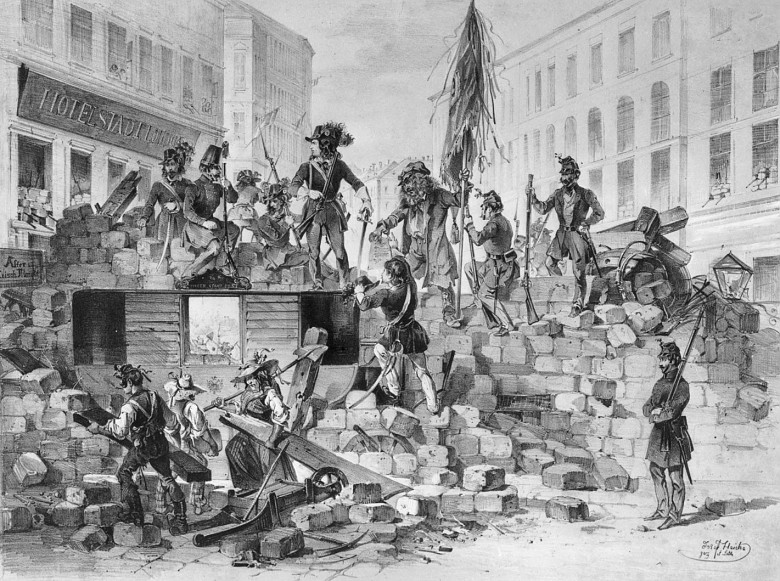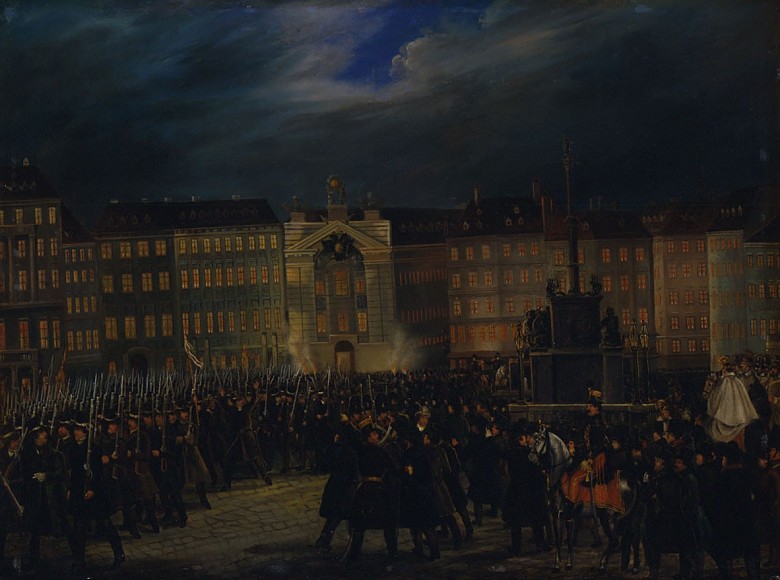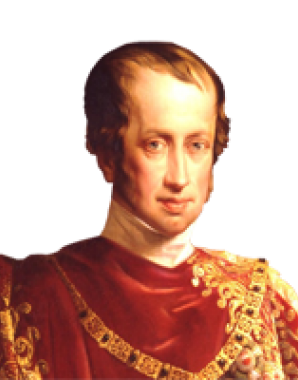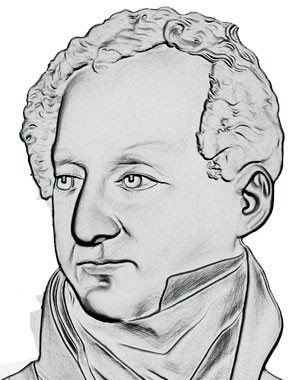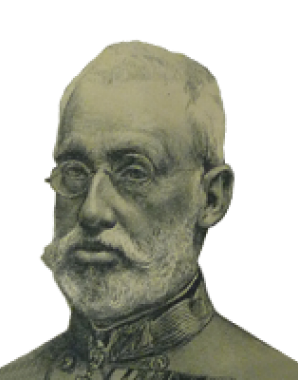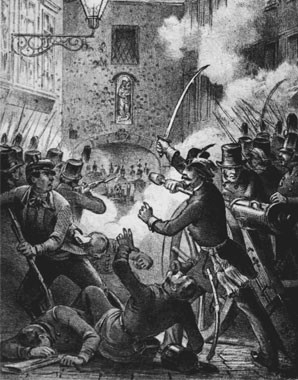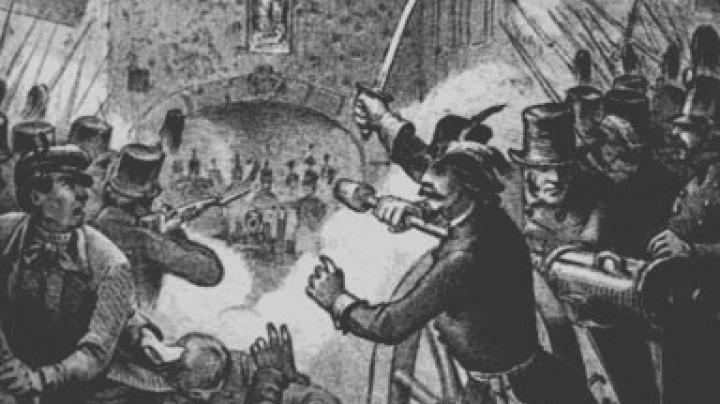‘Yes, but are they allowed to?’ – The revolution of 1848
For the imperial house, the loud voices on the streets were more than just a noisy disturbance: The middle classes were demanding a voice in politics. However, the Habsburgs showed little willingness to make concessions.
Enraged citizens face soldiers at the end of a narrow street. The atmosphere is explosive. The military’s answer is to open fire on the crowd – the Habsburg rulers are not really quite sure how to react. Emperor Ferdinand is said to have betrayed his puzzled incomprehension of the people’s anger with the words: ‘Yes, but are they allowed to?’
The first half of the nineteenth century had seen the Habsburgs persisting in their authoritarian style of ruling. Now, an increasingly vociferous populace was demanding written legislation that would set limits on the ruler’s rights – and ‘constitution’ did indeed become the slogan of the 1848 movement. There were uprisings among the workers of the suburbs surrounding the city walls. On 13 March 1848, Vienna experienced an escalation of this atmosphere, which had already led to unrest in France and Germany and would soon do so in Hungary. When students and citizens demonstrated on their way to the imperial palace, Archduke Albrecht, a son of Archduke Karl, ordered the military to disperse the gathering in the Herrengasse. Members of the enraged mob threw pieces of wood at the soldiers, who responded by opening fire, causing the first fatal casualties.
Although it was initially thought that the uprisings should be countered with brute force, the authorities finally had to give ground: Metternich resigned and fled to England, leaving Emperor Ferdinand to promise the people a constitution. When the final text was published, however, not all were satisfied with it, as it was not as liberal as had been hoped. In the wings, Archduchess Sophie was already lining up her son Franz Joseph to step in as successor to the incompetent Ferdinand. However, the imperial family initially took refuge in Innsbruck and then moved to the Moravian city of Olmütz (Olomouc) after a short stopover in Vienna. In December 1848, Ferdinand finally abdicated, leaving the throne to his nephew Franz Joseph.
